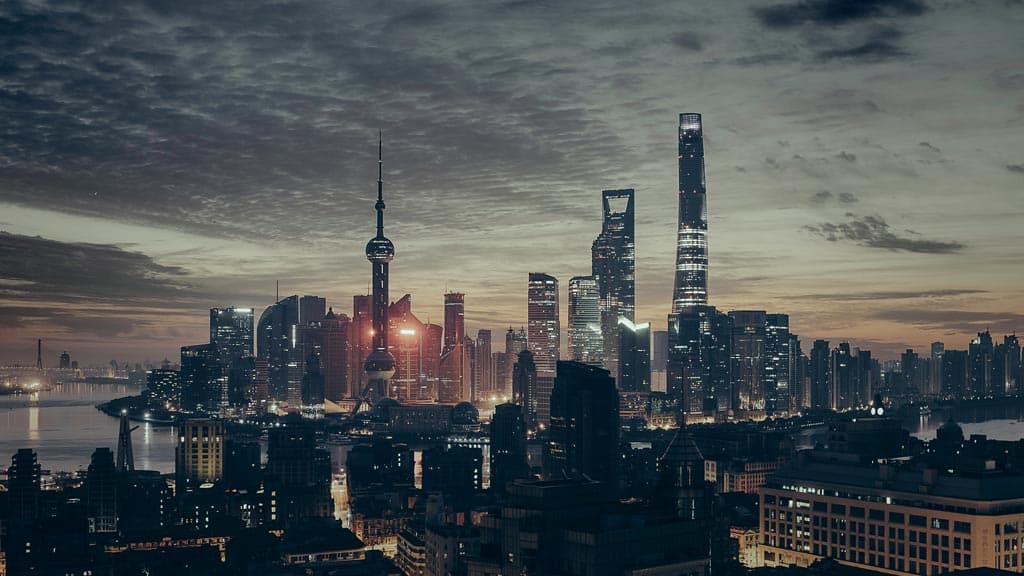China’s challenge is Ireland’s opportunity
The unprecedented scale of China’s urbanisation is leading to the creation of 221 cities with over one million inhabitants by 2025. It is estimated that by 2030, China’s population will reach one billion. The rapid expansion of these cities means that local governments are facing huge difficulties with urban challenges and are now seeking help from Europe in solving these challenges with convenient and effective solutions they can quickly implement – which means there are great opportunities for Irish businesses to move into the Chinese market.
Each of these cities, and their local government-owned companies, have the financial capacity to invest in multiple European projects that can help tackle these problems such as pollution, sustainable farming, food production and infrastructure.
There is no shortage of funds due to strong competition among these Chinese cities to attract and develop innovative projects from the EU.
A look at the technology, transport, food, medical/life sciences, energy and manufacturing sectors confirm that there is a wide scope of industries that Chinese partners are looking to invest in.
Made in China 2025
In 2015, the ‘Made in China 2025’ strategy was launched. According to its policy, China will progressively abandon the low cost, labour intensive industries to develop innovative sectors. Chinese cities are looking at developing key technologically advanced solutions to become the most hi-tech smart cities in the world and competition among them is very strong. They are focusing on robotics, smart cars, renewables, aerospace and more.
This will lead to the delocalization of some factories from China to South(east) Asia and Eastern Africa (Ethiopia) where labour costs are lower and then export production/products from these regions to China and other established developed markets (Europe, USA, Japan).
While opportunities are then present for software and hi-tech companies to partner with local Chinese governments, there will also be scope for manufacturing and export firms to assist in the expansion of production across southeast Asia and Eastern Africa as part of China’s Belt and Road Initiative.
Food
As China’s middle class starts to evolve rapidly, with their incomes and eating habits increasing equally, this is leading to the development of processed food. In 2015, China became the largest market in the world for consumption of processed food, marking a huge increase in health problems relating to cardiovascular and kidney diseases.
With awareness now growing about the effects of processed food on personal health, millennials and the middle class in larger Chinese cities are demanding safer, more organic and pesticide free food from food producers.
Sustainable farming, air and water pollution
China is the world’s largest producer and consumer of pesticides. With limited arable lands, Beijing’s priority remains the development of intensive farming. This overuse of pesticides generates massive pollution in China. Chinese rivers are suffering from alarming pesticide levels and, according to several clean energy studies, agriculture is a bigger source of water pollution than industries.
Soil contamination and air pollution are also consequences of agriculture’s reliance on pesticides.
Chinese citizens are increasingly more concerned about environment and regard pollution as one of the most important issues they face, which has lead authorities searching for solutions to reduce the use of pesticides in farming.
China’s economic model is changing, and Beijing is making environmental protection a priority by launching its ‘zero growth’ plan in pesticide usage across the country by 2020. This plan includes banning the most toxic pesticides used in farming, resulting in China requiring the most advanced sustainable solutions in organic farming.
Although the organic farming market in China is still at an early stage, China will soon be the 4th largest market for organic food and will seek partnerships from similar Irish and EU projects to help them meet this high demand.
Immediate opportunities for Irish businesses
All of the above presents numerous prospects for food exporters, sustainable farmers and innovative tech companies in Ireland to target this market. According to recent EU Commission studies, Chinese consumers tend to have greater trust in non-Chinese products, especially in products designed for children and infants.
Ireland is considered by the Chinese as a very ‘green’ country with a pristine environment, so Irish manufacturers and exporters are encouraged to emphasise this quality in their marketing and communication materials.
Current challenges for Irish businesses looking to move into the Asian market
Irish companies are currently facing challenges of presenting their companies or products to relevant investors and trade partners in Asia. There are also the financial costs of travel to a country like China when a business owner might only have been able to arrange a small number of meetings. Additionally there are language barriers to overcome.
VidPitch is a gateway company to the Asian trade and investment markets. VidPitch creates video pitches in English, with Chinese translation, and broadcasts them to Chinese investors and trade partners on local Chinese social media accounts, as well as industry-specific conferences that business owners are unable to attend.







